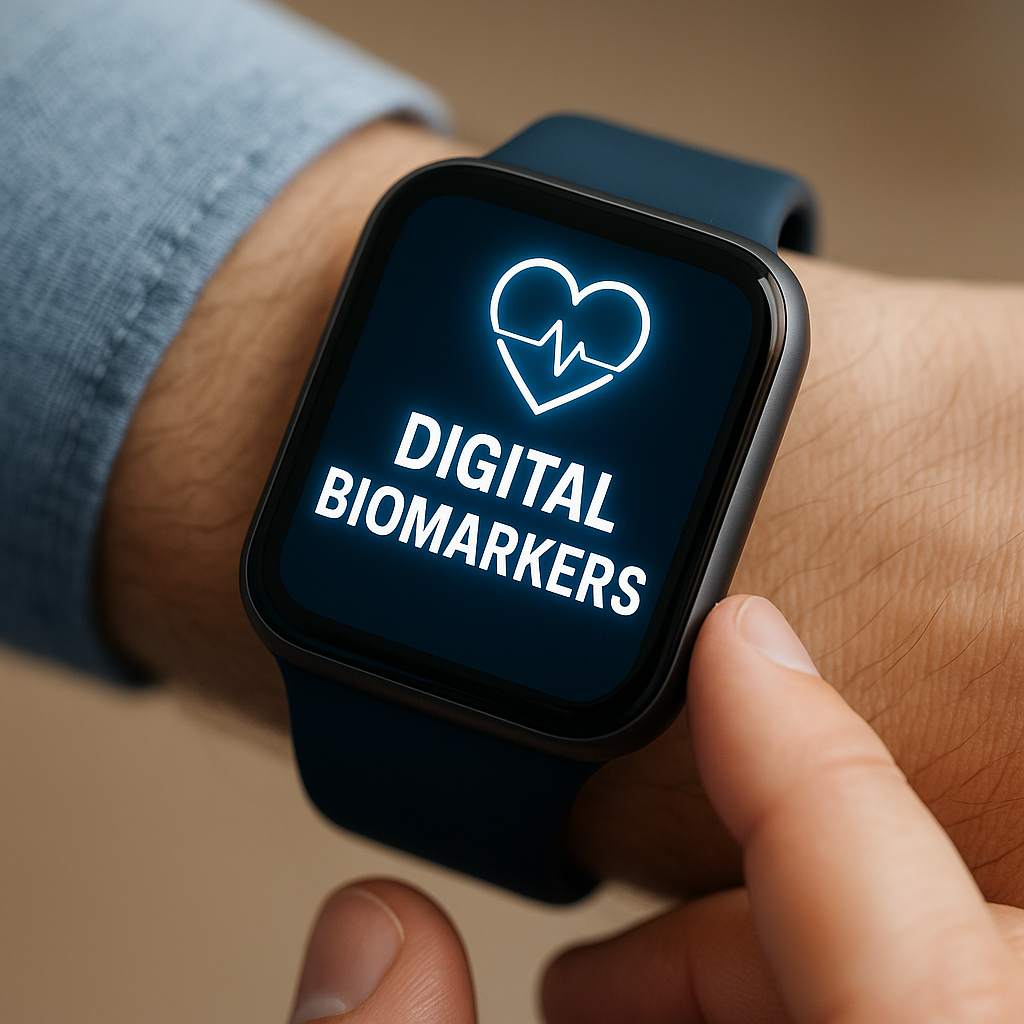Let’s be honest—when most people hear the term “digital biomarkers,” their eyes glaze over. It sounds like another flashy tech buzzword that’ll be forgotten in a year, like 3D TVs or Google+. But lately, I’ve found myself digging into this space, and I have to say: this is not just hype. It’s quietly reshaping how we understand health, and I think a lot more people should be paying attention.
We’re not just talking about apps that track your steps or count how many hours you snore. This is about continuously monitoring real biological signals—like heart rate, voice tone, movement, even screen-tapping patterns—to catch early warning signs of diseases, sometimes before a person even knows something is wrong.
So, What Exactly is Digital Biomarker?
Okay, let’s break this down. A digital biomarker is basically any kind of health-related data that’s collected by a digital device—like a smartwatch, smartphone, fitness tracker, or sensor patch. It can include everything from your sleep rhythm and heart rate to how you speak or walk. And unlike traditional biomarkers (think: blood pressure, lab tests), these can be collected passively, all the time, without interrupting your day.
For example, if someone has Parkinson’s, a smartwatch can track their hand tremors and walking pace every hour. That data helps doctors adjust treatment without needing frequent hospital visits. It’s not just data—it’s context. It’s patterns. And in many cases, it’s a lifesaver.
Real Lives, Real Impact
I have a friend—let’s call him Raj—who was recently diagnosed with a heart condition. Nothing too extreme, but enough to keep his family on edge. His doctor got him a patch that monitored his heart 24/7, streaming data straight to his cardiologist’s phone. A few weeks in, the doctor noticed irregularities, made quick tweaks to his meds, and likely avoided a much scarier situation.
Raj didn’t need to rush to the hospital or sit in long queues. That device gave him a layer of protection he didn’t know he needed. And honestly, it gave him peace of mind too.
And that’s the thing—digital biomarkers aren’t just fancy tools for researchers. They’re already helping people manage chronic diseases like diabetes, Alzheimer’s, epilepsy, even depression. Some apps now flag mental health changes by analyzing how you type or talk on your phone. Sounds creepy? Maybe a bit. But if it helps someone avoid a depressive episode or panic attack, it’s hard to argue against. If you’re curious about how digital tools are shaping broader health trends, this health insights page has some interesting reads.
Pandemic Pushed Gas Pedal
Here’s the thing: this space was already growing quietly before COVID-19, but the pandemic threw fuel on the fire. Doctors couldn’t see patients in person. People were stuck at home. Suddenly, remote monitoring wasn’t optional, but it was essential. And just like that, digital biomarkers went from “emerging trend” to “we need this now.”
Hospitals and clinics started integrating wearables and apps into their patient care models. Even insurance companies got interested. And honestly? A lot of patients got more comfortable with this tech too. It became part of everyday life—normal, even.
Numbers Blew My Mind
I recently came across a report by Roots Analysis that really put things into perspective. According to them, the digital biomarkers market is estimated to be USD 5.6 billion in 2024 and is projected to hit USD 35.8 billion by 2035. That’s not a typo. That’s a CAGR of 18.48% over the next decade.
That kind of growth usually means one thing: this is not a passing trend. It’s a full-on shift in how healthcare is going to work—more real-time, more personalized, and way more proactive.
But Yeah, it’s Not All Smooth Sailing
Let’s not pretend it’s perfect. There are some serious challenges here. First off, data privacy is a real concern. When a device is constantly collecting your heart rate, sleep cycle, voice tone, and location, who owns that info? How is it stored? And who gets to see it?
Also, not all devices are created equal. Some fitness trackers are accurate, some are…not. If we’re using this data to make medical decisions, we need strict standards and regulatory approval. Otherwise, we risk making decisions based on shaky information.
Then there’s the people factor. Not all doctors are trained to understand real-time digital data. Some clinics don’t even have systems in place to manage it. So while the tech is sprinting ahead, the medical world still has a bit of catching up to do.
Still— This Feels Like Future
Despite the hiccups, I think digital biomarkers are here to stay. Because once you get a taste of real-time monitoring that helps, it’s hard to go back.
Imagine an app catching early signs of Alzheimer’s just from how someone’s speech changes. Or a wearable warning someone of an oncoming seizure. Or subtle mood tracking that helps someone living with bipolar disorder stay ahead of their swings. This isn’t sci-fi—it’s literally happening right now.
And for people in rural or underserved areas, this tech could mean the difference between getting care or not. They don’t need a clinic nearby. They just need a signal and a device.
My Takeaway? This Tech is Personal.
For me, this is more than just an industry trend or another cool gadget. It’s about giving people—especially those with chronic conditions, more visibility, and more chances to avoid suffering.
I think we’re entering a new phase of healthcare. One where data isn’t just something collected in a lab once a year, but something that helps every day. And digital biomarkers? They’re going to be a big part of that.


